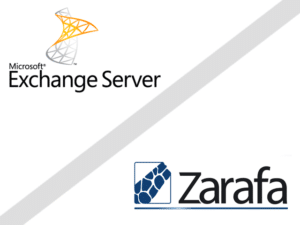One interesting thing about Microsoft’s recent communications regarding its public beta of Office 2013 is that the emphasis has been entirely on the client-side and cloud-based aspects. To learn anything more about the new Microsoft Exchange server requires more digging.
This is a sign of how Microsoft is shifting focus, and though it is keeping and adapting most of its legacy office programs, it is starting to recognize that its models are becoming less viable in the face of Microsoft Exchange alternative providers.
Organizations Are Losing Fear of Hosted and Cloud-Based Solutions
Email has been one of the prime vectors of malicious attack, and in fact the combination of “Microsoft Outlook + VBScript” used to be almost synonymous with basic hacking. Companies have been forced to stay guarded when it comes to email content as it contains the core of all internal communications and is also a powerful resource for attackers. This has been enough to justify the overhead associated with storage, licensing, and upkeep of email systems.
However, things have changed in recent years. Enterprise organizations are willing to trust their email exchange to hosted/cloud-based third parties, finding that security is often more than adequate and that the ability to leverage web access and mobility creates returns in productivity that more than justify the risks of giving up control.
Competitors Have Established Viability
Microsoft Exchange market share has dropped accordingly. Gmail as a business solution may have not been a widely-embraced idea when Google first launched its services, but nowadays email as part of Google Apps for Business has become the go to solution for countless successful organizations.
In addition, open source exchange alternatives such as Zarafa have allowed businesses to build an entirely Exchange-compatible email stack on top of a Linux-based solution. This allows them to leverage the advantages of local control yet also sidestep massive ongoing licensing costs and easily implement mobile and web-based access.
If you are evaluating your long term email strategies and considering migration, contact a trusted Exchange alternative provider.


